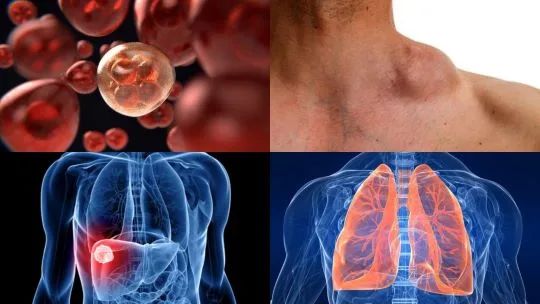Have you ever wondered about the hidden dangers of the firefighting foams used in emergencies? Known as Aqueous Film Forming Foam (AFFF), this substance is crucial in extinguishing difficult fires, particularly those involving flammable liquids.
However, beneath its life-saving facade lies a concerning aspect: the chemical components of AFFF. These components, which include perfluoroalkyl and polyfluoroalkyl substances (PFAS), have been linked to various health risks, including cancer.
As awareness grows, different AFFF foam lawsuits are emerging, highlighting the need for accountability and safety in using these firefighting products. This article delves into the types of cancer associated with AFFF exposure, underscoring the importance of understanding these risks.
The Science Behind AFFF and Cancer
AFFF, or Aqueous Film Forming Foam, is widely used for firefighting, especially in combating fuel fires. However, its effectiveness comes with a hidden danger due to toxic chemicals, primarily perfluoroalkyl and polyfluoroalkyl substances (PFAS). These substances are known for their persistence in the environment and ability to accumulate in the human body.
The link between these chemicals and cancer is a growing concern. PFAS, often referred to as “forever chemicals,” have been associated with various types of cancer. For instance, a study highlighted on PBS NewsHour reveals a direct association between PFOS, a kind of PFAS, and testicular cancer among military personnel.
This study, conducted by the National Cancer Institute and the Uniformed Services University of the Health Sciences, found elevated levels of PFAS in the bloodstream of airmen who were firefighters, correlating with a higher incidence of testicular cancer.
Another study, as reported by the Military Times, supports these findings, showing a significant link between PFAS exposure and testicular cancer in U.S. troops. This research adds to the growing evidence that exposure to the chemicals in AFFF is a severe health concern.
These studies and others like them are crucial in understanding the full impact of AFFF exposure on human health, particularly its carcinogenic potential. The ongoing research underscores the need for caution and further investigation into the long-term effects of these chemicals.
Types of Cancer Associated with AFFF Exposure
Here’s an overview of the cancers associated with AFFF exposure:
Kidney Cancer: Kidney cancer, which affects the kidneys’ ability to filter blood and remove waste, has been a growing concern. Research indicates a potential link between AFFF exposure and an increased risk of developing kidney cancer. The toxic chemicals in AFFF, particularly PFAS, are known to accumulate in the kidney, potentially leading to cancerous growth.
Pancreatic Cancer: Pancreatic cancer, a deadly form of cancer affecting the pancreas, has also been associated with AFFF exposure. Studies suggest that the PFAS in AFFF can disrupt the normal functioning of the pancreas, potentially leading to cancerous development.
Testicular Cancer: Testicular cancer affects the testes and is particularly concerning for younger men. As mentioned earlier, studies have found a direct correlation between AFFF exposure and an increased risk of testicular cancer, especially among firefighters and military personnel.
Liver Cancer: Liver cancer, which impacts the liver’s ability to process nutrients and filter blood, has been linked to AFFF exposure. Research indicates that the accumulation of PFAS in the liver can lead to malignant tumors.
Breast Cancer: Breast cancer, one of the most common cancers among women, has been connected to AFFF exposure. The chemicals in AFFF can mimic hormones and disrupt the endocrine system, potentially leading to the development of breast cancer.
Lymphoma: Lymphoma, a cancer of the lymphatic system, has been associated with AFFF exposure. The toxic substances in AFFF can affect the lymph nodes and other parts of the lymphatic system, increasing the risk of lymphoma.
Leukemia: Leukemia, a cancer of the body’s blood-forming tissues, has shown links to AFFF exposure. The chemicals in AFFF can damage the bone marrow and lead to the development of leukemia.
Non-Hodgkin’s Lymphoma: Non-Hodgkin’s Lymphoma, a diverse group of blood cancer, has been associated with AFFF exposure. The PFAS in AFFF can cause abnormalities in the lymphatic system, leading to this type of cancer.
Ovarian Cancer: Ovarian cancer, which affects the ovaries, has been linked to AFFF exposure. Studies suggest that the chemicals in AFFF can disrupt the hormonal balance, increasing the risk of ovarian cancer.
Prostate Cancer: Prostate cancer, affecting the prostate gland in men, has been connected to AFFF exposure. The endocrine-disrupting chemicals in AFFF can affect the prostate gland, increasing the risk of cancer.
Bladder Cancer: Bladder cancer, which affects the bladder’s ability to store urine, has been linked to AFFF exposure. The accumulation of toxic substances from AFFF in the bladder can lead to malignant growth.
Conclusion
The growing body of evidence linking AFFF exposure to various types of cancer underscores the critical need for increased awareness and preventive measures. It’s essential for individuals, especially those in the firefighting and military professions, to be informed about the potential risks associated with AFFF.
Implementing safety protocols and exploring safer alternatives can significantly reduce these risks. Additionally, ongoing research is vital to further understanding the extent of AFFF’s impact on health. This research not only aids in developing more effective prevention strategies but also supports the pursuit of justice and compensation for those affected.
The post The Types of Cancer You Can Get from AFFF Exposure appeared first on South Florida Caribbean News.









